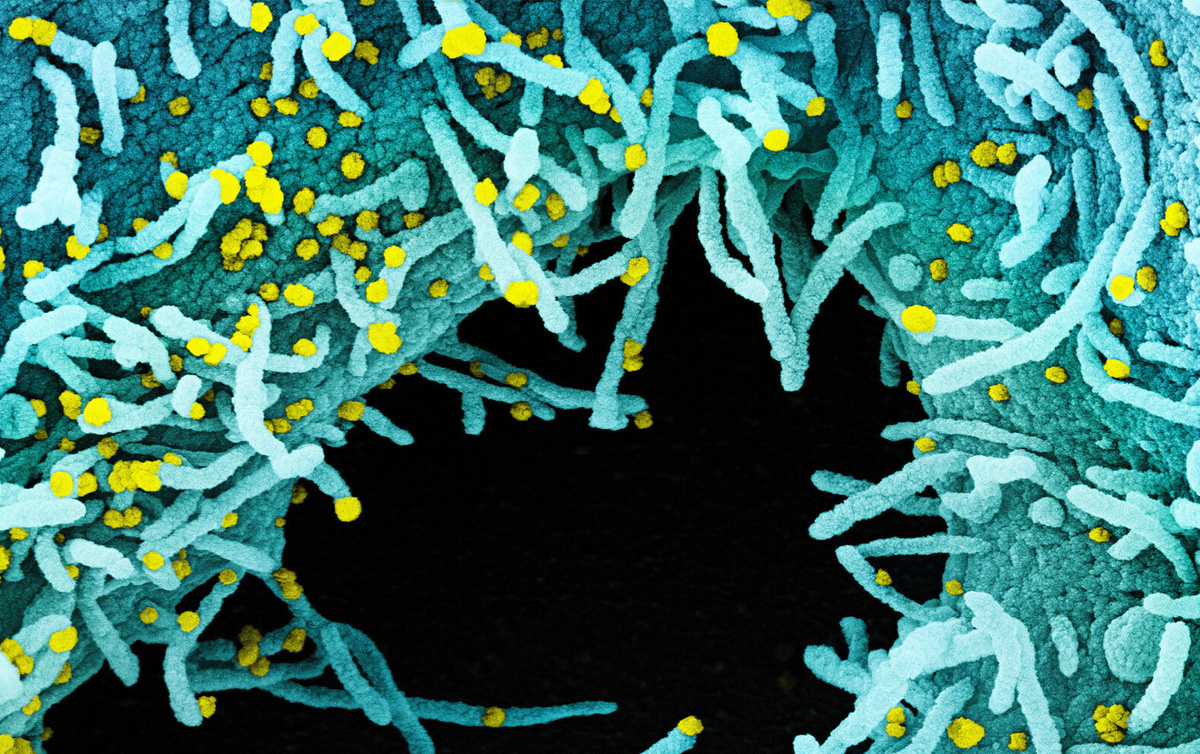
Scientists Discover Mutation Making SARS-CoV-2 Milder
August 26, 2020| |
Scientists at Singapore's Agency for Science, Technology, and Research (A*STAR) have found that a mutation in SARS-CoV-2 called ∆382 leads to milder clinical outcomes, with implications for COVID-19 treatments and vaccines.
There have been many variants identified in the SARS-CoV-2 genome. Such genetic variations can translate to different features that affect the virus in different ways. The A*STAR group focused their research on the particular variant detected through routine sequencing of the SARS-CoV-2 genome in a cluster of cases in Singapore that occurred between January and February of this year.
The variation is a deletion of 382 nucleotides, which is why it is called ∆382 variant. It is located in a region of the genome called the open reading frame 8 (ORF8) region, a known hotspot for mutations and genetic variation in coronaviruses. In this case, the deletion has resulted in the removal of the ORF8 transcription-regulatory sequence, meaning the ORF8 protein is not produced. In 131 patients across seven Singaporean public hospitals with PCR-confirmed SARS-CoV-2 infections, the variant was present in about 30% of the patients. Of those 131 patients, 29 (22%) carried only the ∆382 variant virus, while 10 (8%) had a mix of both the wild-type and the ∆382 variant viruses. Similar variants with deletions of varying lengths in ORF8 have been observed in other countries as well, such as Bangladesh, Australia, and Spain.
Looking at the clinical features of the patients, the A*STAR team learned that patients with ∆382 variant were less likely to need supplemental oxygen and were less likely to develop hypoxia. They had lower concentrations of pro-inflammatory cytokines and chemokines that are strongly associated with severe COVID-19 and also had a better immune response.
For more details, read the article in A*STAR.
| |
You might also like:
- Researchers Discover Vulnerability in SARS-CoV-2
- Human Immune System Responds to Plant-derived SARS-CoV-2 Antigens
- Study Finds SARS-CoV-2 Has Six Strains
Biotech Updates is a weekly newsletter of ISAAA, a not-for-profit organization. It is distributed for free to over 22,000 subscribers worldwide to inform them about the key developments in biosciences, especially in biotechnology. Your support will help us in our mission to feed the world with knowledge. You can help by donating as little as $10.
-
See more articles:
-
News from Around the World
- ISAAA Webinars: Animal Biotechnology, The Next Frontier
- Florida Board Allows First GM Mosquito Trials in the US
- Wild Genes to Improve Nitrogen Fixation in Soybeans
- Filipino Regulators Learn from International Experts in Regulating Animal Biotech Products
- Russian Biologists Sequence Fusarium Genome
-
Research Highlights
- Research Shows Bt Cotton's Performance in Rainfed Areas
- Antagonistic Genes Modify Rice Plant Growth
-
Plant
- Root Angle Modifications Lead to Improved Rice Yields in Saline Fields
- Scientists Re-evaluate Rice Green Revolution Gene
-
Health
- MassBiologics Identifies Antibodies that may Protect Against COVID-19
- Hospital in Israel Starts Trials for the Fastest COVID-19 Test
- Scientists Discover Mutation Making SARS-CoV-2 Milder
-
Read the latest: - Biotech Updates (January 21, 2026)
- Gene Editing Supplement (December 17, 2025)
- Gene Drive Supplement (February 22, 2023)
-
Subscribe to BU: - Share
- Tweet

